
Overview
BayCare Life Management is a mental health treatment center for people seeking treatment near Hillsborough County. As part of their treatment modalities for recovery, BayCare Life Management provides cognitive behavioral therapy, telemedicine/telehealth therapy, and substance use disorder counseling during treatment. BayCare Life Management is located in Tampa, Florida, accepting cash or self-payment for treatment.
BayCare Life Management at a Glance
Payment Options
- Cash or self-payment
- Medicaid
- Medicare
- Private health insurance
- Aetna
Assessments
- Screening for tobacco use
- Comprehensive mental health assessment
- Comprehensive substance use assessment
- Screening for mental disorders
- Screening for substance use
Age Groups
- Adolescents
- Young adults
- Children/adolescents
- Seniors
- Seniors or older adults
Ancillary Services
- Mental health services
- Social skills development
- Court-ordered outpatient treatment
- Family psychoeducation
Highlights About BayCare Life Management
7.41/10
With an overall rating of 7.41/10, this facility has following balanced range of services. Alcohol Rehabilitation: 8.24/10, Drug Rehab and Detox: 6.92/10, Insurance and Payments: 6.53/10, Treatment Options: 7.94/10.-
Alcohol Rehabilitation 8.24
-
Treatment Options 7.94
-
Drug Rehab and Detox 6.92
-
Insurance and Payments 6.53
Accreditations
Commission on Accreditation of Rehabilitation Facilities (CARF):

CARF accreditation is a prestigious recognition for rehabilitation and human service organizations. It signifies that an organization meets high-quality standards and is committed to providing top-level care. CARF conducts rigorous evaluations to ensure compliance, enhancing an organization's credibility and reassuring clients and funders of exceptional service quality. This accreditation promotes excellence and continual improvement in the rehabilitation and human services field.
SAMHSA certification for opioid treatment program (OTP):
SAMHSA's Opioid Treatment Programs (OTP) Accreditation is a rigorous recognition process, signaling an OTP's commitment to high-quality care for those with opioid use disorders. It assures patients, families, and the community that the program adheres to evidence-based practices, maintains a safe environment, and employs qualified staff. This accreditation represents a commitment to addressing the opioid epidemic and promoting recovery, symbolizing quality and accountability in opioid addiction treatment.
Treatment At BayCare Life Management
Treatment Conditions
- Mental health treatment
- Alcoholism
- Substance use treatment
- Co-occurring Disorders
Care Levels
- Outpatient
- Outpatient methadone/buprenorphine or naltrexone treatment
- Regular outpatient treatment
- Aftercare
Treatment Modalities
- Cognitive behavioral therapy
- Telemedicine/telehealth therapy
- Substance use disorder counseling
- Trauma-related counseling
- Group counseling
Ancillary Services
Languages
- Sign language services for the deaf and hard of hearing
- Spanish
Additional Services
- Pharmacotherapies administered during treatment
- Housing services
- Breathalyzer or blood alcohol testing
Special Programs
- Clients who have experienced trauma
- Clients with co-occurring mental and substance use disorders
- Persons 18 and older with serious mental illness (SMI)
- Persons with post-traumatic stress disorder (PTSD)
Get Help Now
Common Questions About BayCare Life Management
Contact Information
Other Facilities in Tampa

6.89

7.03

7.91
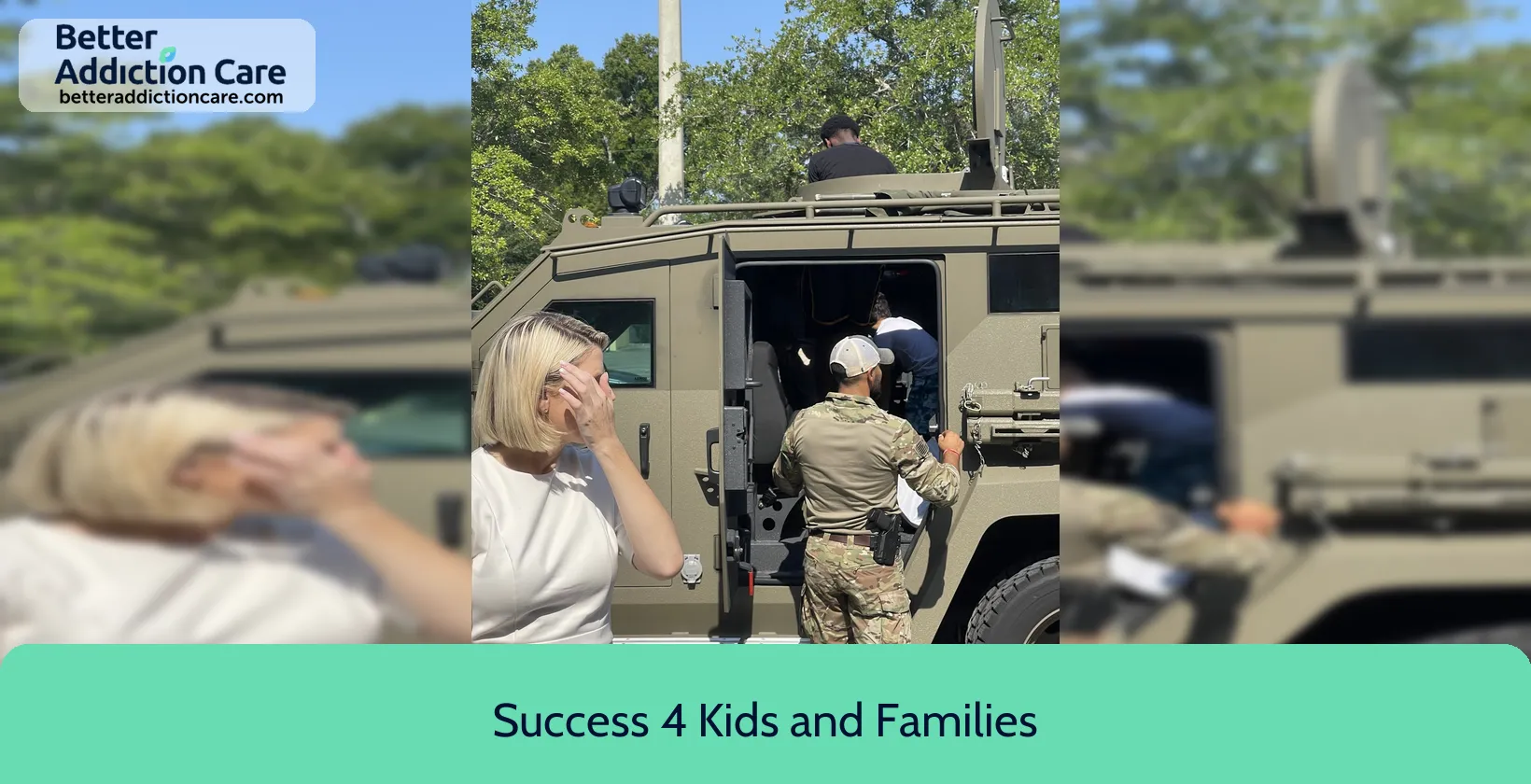
6.56
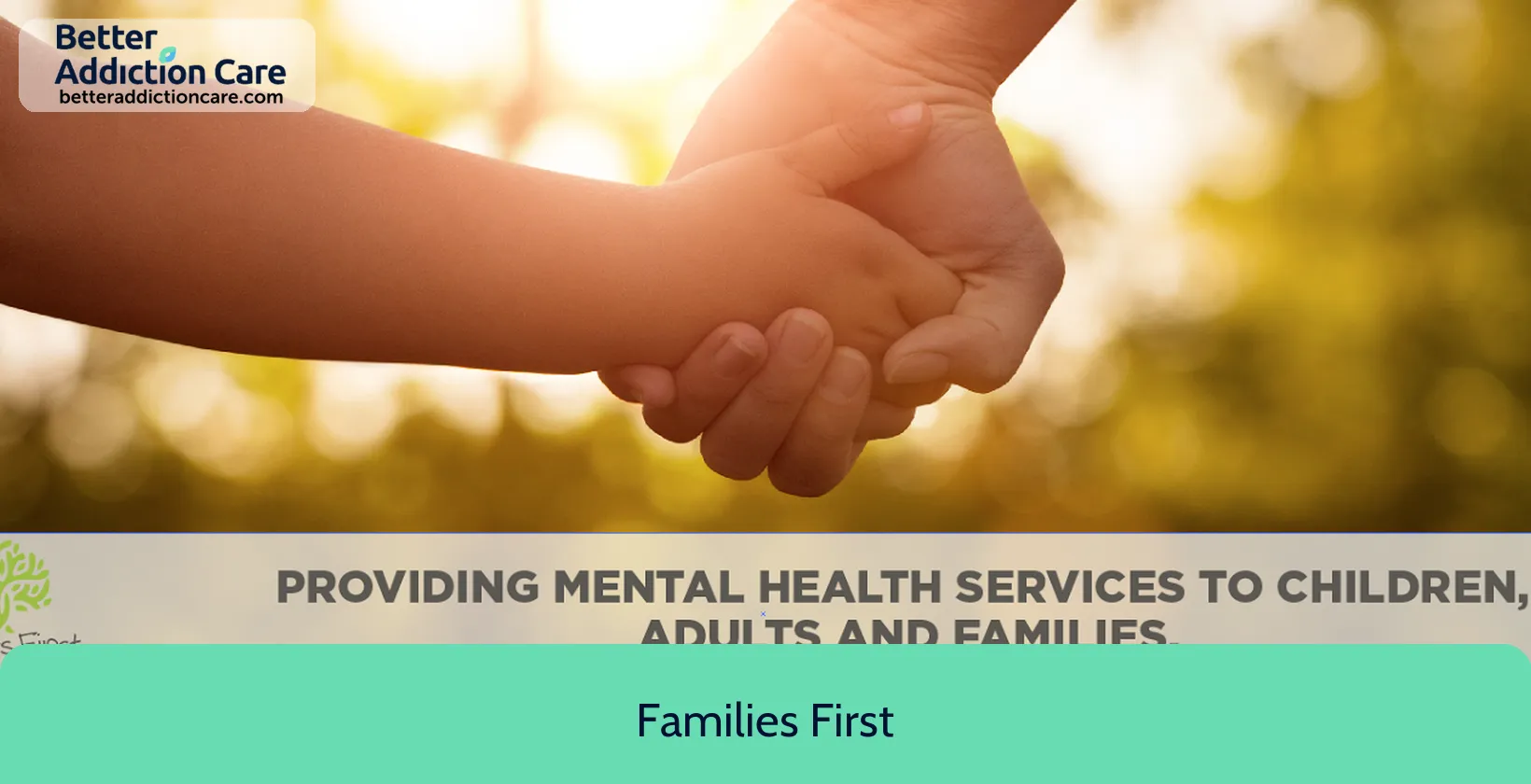
6.59
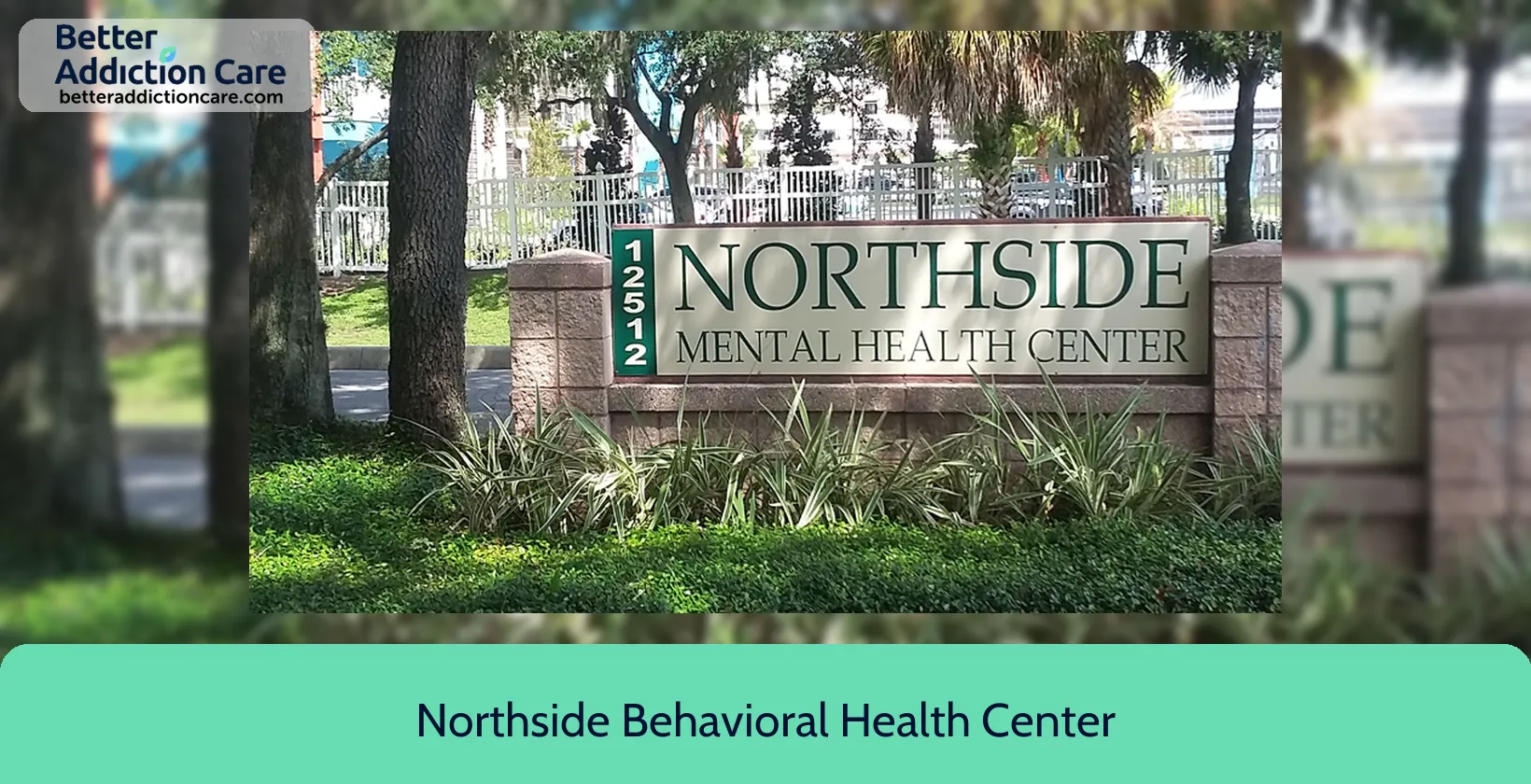
6.65
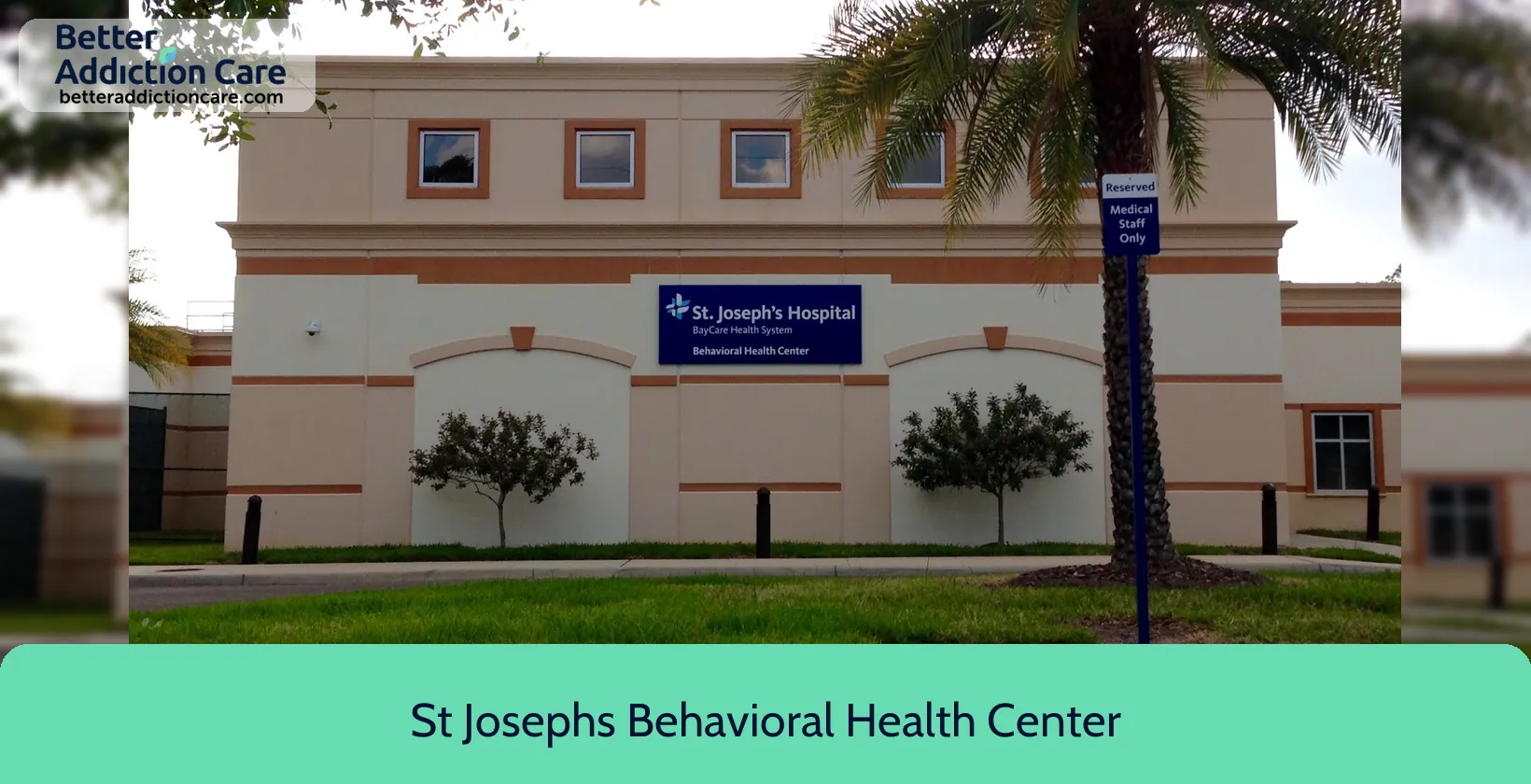
6.56
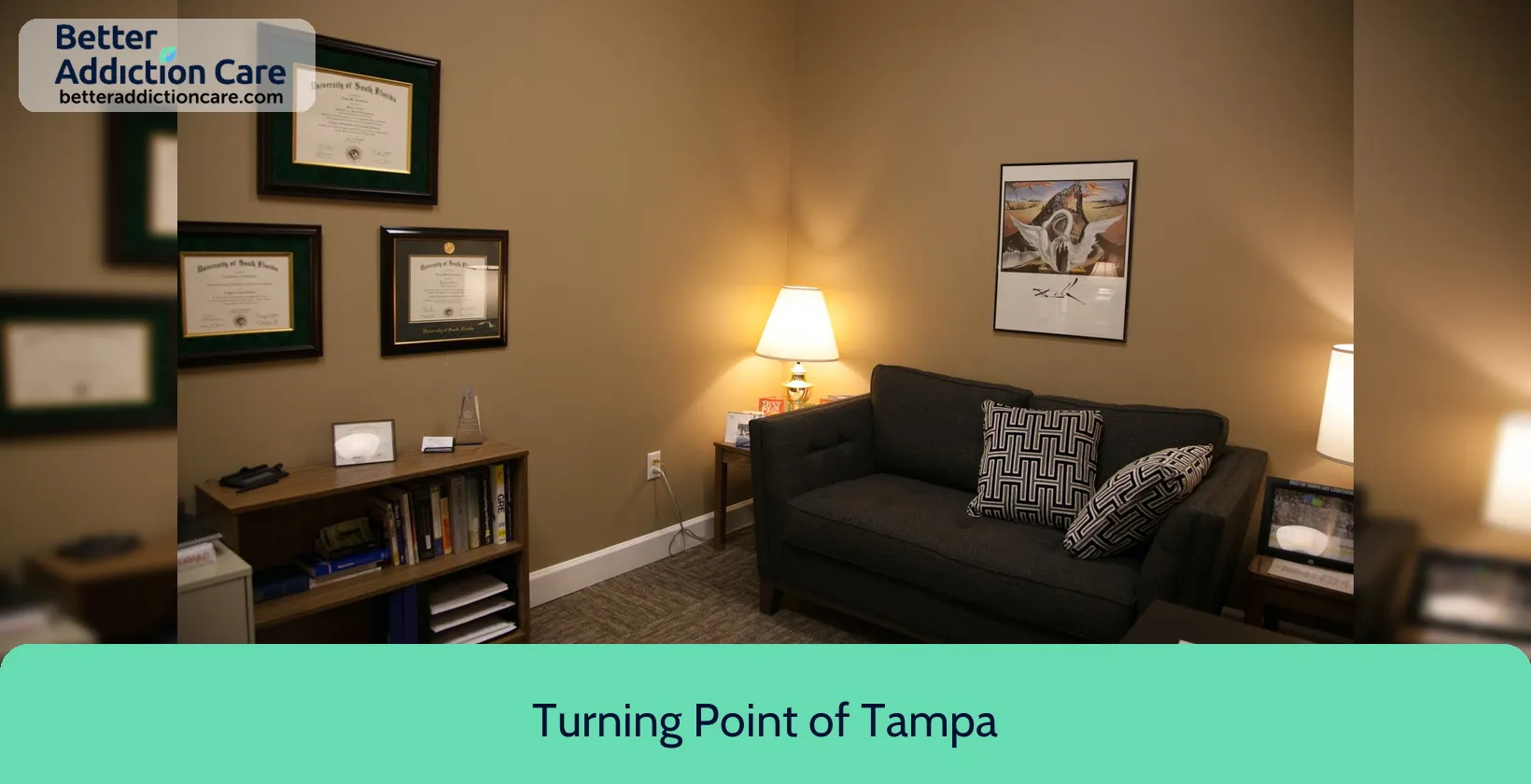
7.08
DISCLAIMER: The facility name, logo and brand are the property and registered trademarks of Turning Point of Tampa, and are being used for identification and informational purposes only. Use of these names, logos and brands shall not imply endorsement. BetterAddictionCare.com is not affiliated with or sponsored by Turning Point of Tampa.
